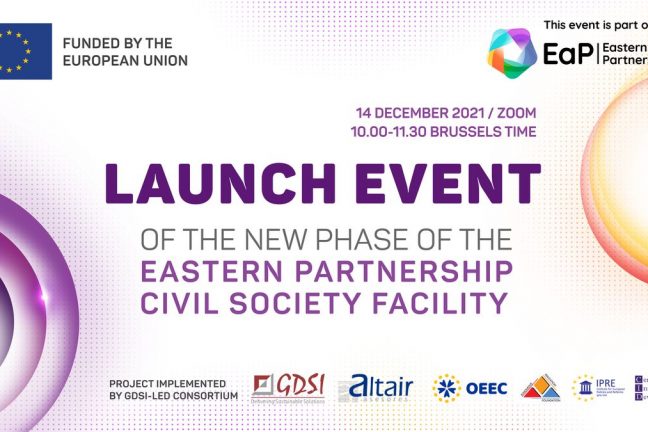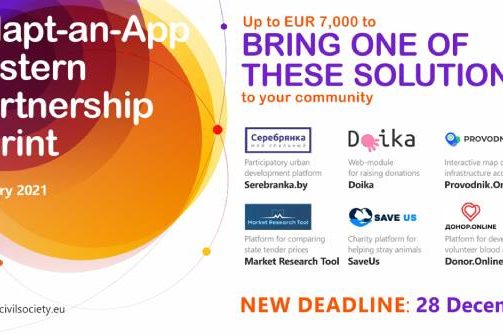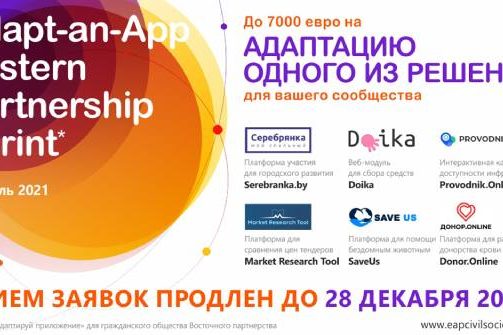We are now inviting civil society leaders from the Eastern Partnership countries (Armenia, Azerbaijan, Belarus, Georgia, Moldova, Ukraine) to participate in a needs assessment survey which will be used to adapt the programme and curriculum of a new blended course on Leadership for the Civil Society Organisations in the EaP countries that our Project is working on.
The survey is available in both English and Russian and will not take long to complete. Your contribution will be crucial for ensuring the blended course is relevant and adapted to the needs of civil society from the region. Please help us by filling in the survey by June 23rd, 2020 and we will make sure we keep you informed of all course developments, including the launch of the call for participants.
The objective of the course on Leadership for Civil Society Organisations to improve the leadership skills of CSO leaders in the Eastern Partnership countries enabling them to collaborate more effectively with others (such as their own teams, external stakeholders, donors, service providers etc.), better organise their teams so as to reach better results, and apply the newly acquired skills to real-life situations.
Indicatively the course will include the following modules and will be developed by the Office for European Expertise and Communications (OEEC) Belarus:
- Module 1: Understanding the people you lead and adapting your leadership style (leader typology, weaknesses and strengths of different types of leaders – all adapted to the context of civil society organisations, etc.)
- Module 2: Managing and motivating teams: triggers of individual motivation in the context of civil society work, developing motivation and commitment in CSO teams, cultural differences in motivation, adapted to the Eastern Partnership region;
- Module 3: Developing negotiation skills: main theories on negotiation, developing practical strategies for negotiation; applying different strategies to various stakeholders relevant for civil society organisations (such as partners, donors, national and local authorities, beneficiaries, etc.);
- Module 4: Conflict resolution and building trust (including leader accountability in a civil society context).
We are planning to launch the call for participants before the end of July 2020, with the course finalising before the end of November.




Comment